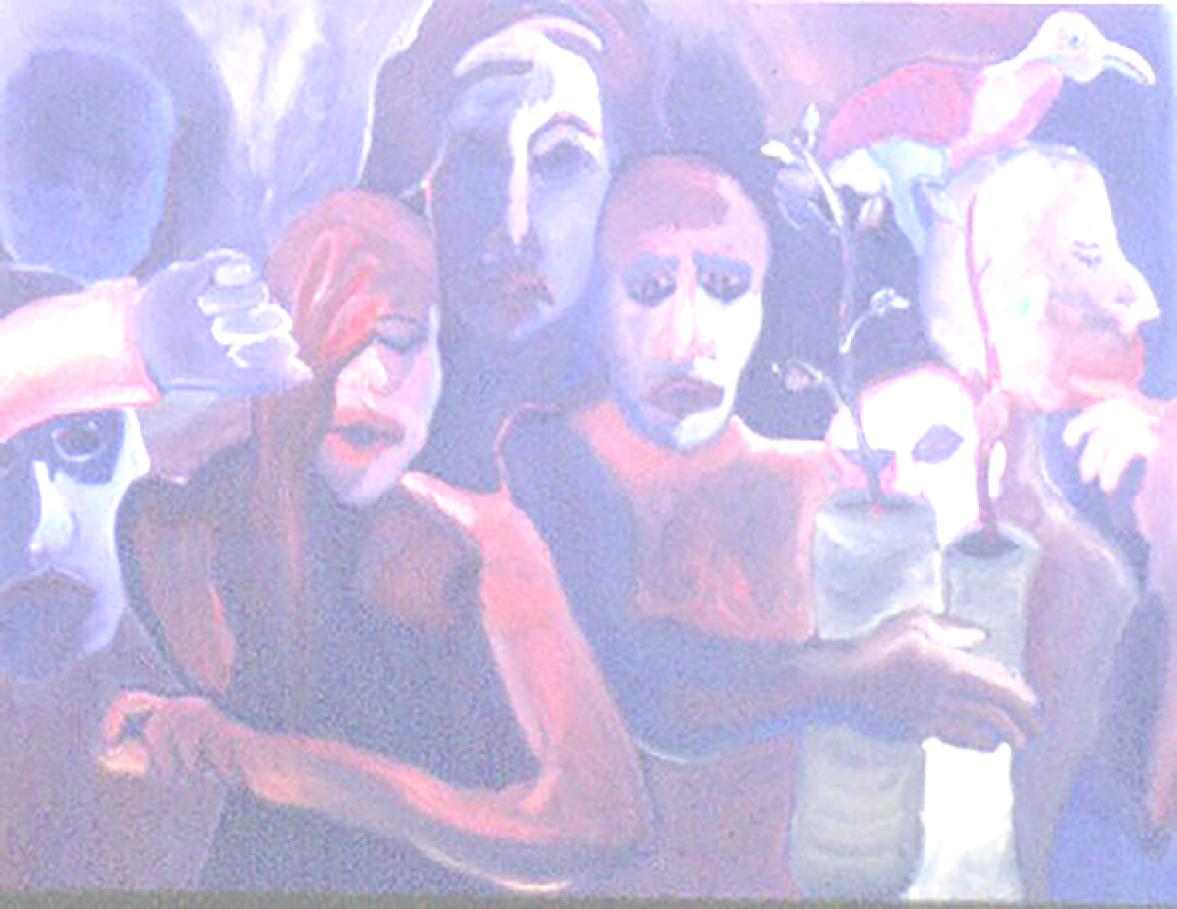I-70 Review
Writing and Art from the Middle and Beyond

H. L. Hix
H. L. Hix lived in Kansas City for fifteen years, and lists among the many things he misses from Kansas City: KC Guitar Society concerts in the park, the Caravaggio “John the Baptist” in the Nelson, and the tunnel of pink and white blossoms made for a week every spring by crabapple trees on the stretch of Main St. between 73rd St. and 73rd Terrace. Now that he lives in a small town in the mountain west, at 7,200 feet, he enjoys the brilliance of the full moon before sunrise, and the whisper of aspen leaves.
[The poems featured here are from his “selected poems,” First Fire, Then Birds (Etruscan Press, 2010); his website is www.hlhix.com.]
One Sparrow
Until he clapped his hands we could not fly,
but all we know now we already knew
from the moment his fingers touched the clay.
He talked to himself, narrated his play,
named all twelve of us. All we could do
was wait 'til his clapped hands taught us to fly.
We did wait, heard that old man scold the boy,
would have held our breaths had we the lungs to,
but 'til his fingers touched, we were still clay.
Making us had kept his sabbath holy:
birds out of clay supersedes any law,
and we knew when he clapped his hands we'd fly.
I was the third made, thrilled with my body,
thrilled soon to fly, but thrilled most that I saw
from the moment his fingers touched the clay.
The men were amazed and went away
to tell others, who would doubt it was true
that when the boy clapped his hands we could fly,
though we knew the moment he touched the clay.
If the Lena River courses north
farther than the Mississippi south,
draining Yablonovyy mountain snow
into the ice-laced Laptev Sea, then
somewhere her eyes' hue must have a rival.
In the geothermal prehistory
of pressure under what became Brazil,
in the igneous light sharp-sifted by
its facet-concentrated chronicle.
In something luminous deep undersea.
In the kincob that confesses quetzal
careening through light-karsted canopy.
Or widow's-mite-offered-us as insects:
a beetle's back prism-tilled minutely;
dragonfly's hexamitos-thrilled thorax;
crushed on my windshield as I drove away,
desire that kept glowing against the dusk,
star-sistered weeping that had been firefly.
Light
All our eyes saw, we saw as god sees it.
Not the glow that is god, but all it lit.
If the maple in the neighbor's yard
needs trimming, its branches having grown
against the slant of his roof, then
birds first of all: copper-feathered pheasant
collared white, with one curled plume for a crest;
a black-trimmed stork's arced wings and awkward flight;
one sparrow with gold cheeks and a striped breast.
My task today in place of purpose: list
what the world offers me when it withholds
you. Bushes bare of leaves but still aburst
with red berries. Green fields freckled by moles.
One woman standing on a stool, washing
windows; one with a poodle the exact
color of her own hair; two men watching
out a window; one woman shaking out
a rug; a small boy, crying, not waving
at the train so much as reaching for it.
If the tattooed woman ahead of me
in the checkout line, helping her husband
transfer groceries from the cart, wore a long
red ribbon laced through a dozen gold rings
pierced in rows down her exposed back, then
I name you Playing Otter for the way
you walk through snow as if you had never,
as if — so it is — nothing lasts the day,
not least your sleek-skinned self, made for water,
made for swimming, sliding on your belly
down snow-slick embankments and out over
what was beaver pond but not ice yesterday
and may return to scrub by next winter.
We learn from snow ways to know exposed rock,
slanted strata shown by what brief white clings,
transient glazed texture wept from each crack,
crystalline score for what Aurora sings,
the glittering, against our normal lack,
of lovely, otherwise faraway things.